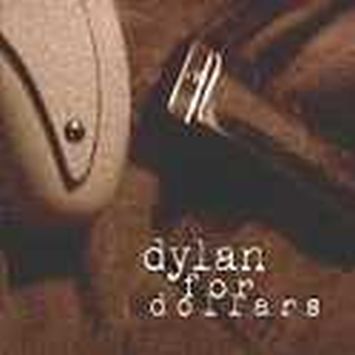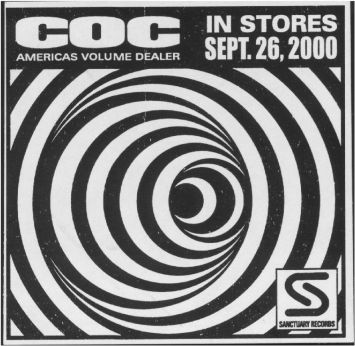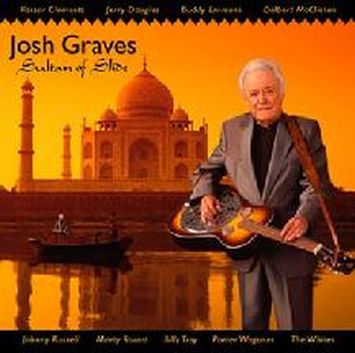
How Does It Feel?
Dylan for Dollars (Independent)
Various Artists
Even if the proceeds from this recording did not go to the Public Radio Partnership, I would still recommend this disc for your listening pleasure. For those unfamiliar with the premise of this production, many local and regional musicians were invited to Headliners Music Hall on July 18, 2000 to perform their renditions of a Bob Dylan song. These 15 performances are raw, imperfect and highly spirited, with inspired approaches and the occasional bungled lyric. It's unfiltered live stuff with not a speck of cereal. Producer Scott Mullins rose to a challenge of assembling an eclectic and sonically-diverse mix of styles and approaches. Between (and including) the big lumbering bus of Tim Krekel & the Groovebillies's treatment of "Like A Rolling Stone" and the raucous thrash of Bodeco's "Maggie's Farm" lie some compelling performances. Although space doesn't permit a detailed review of each performance, there were many noteworthy ones.

The Grovebillies's opener is pretty faithful to the original, turbocharged with a horn section and, at one point, Krekel riffing lyrics from a Beatles song called "Dig It," an outtake from "Let It Be." El Roostars follow with a hard-rocking straightforward romp through "Baby Let Me Follow You Down." Cosmo teams with Soul, Inc. for a solid and soulful "Knockin' on Heaven's Door."
The unexpected delights come from those who take some new approaches to the familiar material. Heidi Howe's collaboration with the Bryan Hurst and the Lolligaggers on "Buckets of Blood" puts an edgy Lone Justice-Maria McKee spin on the original. Satchel's Pawn Shop scores big with their witty and urbane reading of Dylan's politically naïve "Mozambique," retaining the charm of Dylan's rendition while updating it with sonic layers of horns and keys. Hog Operation's acoustic virtuosity bridges the gap between the Dylan and Hendrix versions of "All Along the Watchtower."Desolation Row" is part send-up and part demonstration of the irony of the T.S. Eliot style lyric against joyous Juggernaut Jug Band arrangements (including musical references to "Ghost Riders in the Sky"). Butch Rice brings urgency and passion to "She Belongs To Me." Edenstreet offers a rousing, crunchy deconstruction of "Gotta Serve Somebody."
The selection that I keep coming back to is the gritty and real rendition of "I Threw It All Away" by Tanita Gaines and the Accused. Tanita's performance transcends the theme of the record and makes the song her personal and powerful statement of reminiscence and regret. It is the standout track of a recording that testifies to the talent and range of our musical community.
Proceeds from the sale of Dylan for Dollars benefit the Public Radio Partnership.
Now Playing in the Lounge. . .
End of Time (ear X-tacy records)
Dick Sisto
Some Other Time (Stork Music Productions)
The Jeff Sherman Trio
Nightclub (Premonition Records/Blue Note)
Patricia Barber



In the liner notes to her recent release Nightclub, Patricia Barber writes, "Something special can happen late at night in a jazz club. As the crowd thins, the musicians intuitively sense that those few who have stayed, have stayed for a reason." What first might come to mind is that the ones who have stayed can't move their liquored-up butts out the door, but that's not the context of Barber's epigram. She is describing the cozy reciprocity that happens when a handful of entranced listeners stay into the early hours for a small jazz ensemble's final set, and of how the ensemble works hard to please its small audience.
It creates the prototypical night of jazz: late night, cigarette smoke gauzing the room, Martell pooled in snifters, couples holding hands under their tables, soft standards floating from the stage.
Three recent jazz releases, two of them from local performers, embody the atmosphere of a jazz lounge during the wee small hours. The first does it with a mix of originals and bold takes on standards, the second does it with an interesting selection of standards and performances that veer from fast to slow, and the third does it (unexpectedly) with bland versions of standards.
End of Time is Dick Sisto's first recording since American Love Song. For this one he's gathered a fine quartet of support with Kenny Werner on piano, Drew Gress on bass, Steve Davis on drums and Barry Ries on trumpet, flugelhorn and drums. Of the three recordings, this is the most un-loungey. All the tracks avoid the verse-chorus-verse-solo template and the performers make a clean use of the space for their solos, particularly in the title cut (written by Sisto). Yet they do so without losing their intimate feel. The material might be best performed in a formal concert (which would most likely happen, since the recording was made at the Kentucky Center for the Arts), but it wouldn't overpower a small audience in a club. Among the outstanding individual contributions on End of Time are Barry Ries's flugelhorn solos, which feather across the tight swing of "Rhythm Thing" and lilt along the cool melody line in "Two Five City." Kenny Werner provides crisp piano solos, especially in "Insider."
In End of Time Dick Sisto has given his performers room to play and material to grow into. Meanwhile, Jeff Sherman and his trio appear to rush through much of their set of standards in Some Other Time. Joined by bassist Ben Ingram and drummer Bruce Morrow, Sherman (jazz guitar instructor at Bellarmine University) has a technical proficiency that goes beyond mastery. But couldn't he slow down and let us enjoy it for awhile?
Some Other Time opens with Sherman's solo guitar giving a pleasant coating to "Always and Forever," one of Pat Metheny's saddest ballads. Sherman's version works and provides the introduction to the rest of the recording, all the way from the smooth cool of "Groove Merchant" to "Heat Wave." The recording does have a few tender moments, especially "I Loves You, Porgy,"Some Other Time," and "Moonlight in Vermont." And no matter what the tempo is throughout the recording, both Ingram and Morrow keep the rhythm tight and light.
To be honest, a trio of guitar, bass and drums doesn't give itself room to stretch out much to play. Still, the trio's proficiency is indisputable. Their sound is balanced and crisp. Yet based on the overall feel of Some Other Time, if this trio were playing the prototypical late night jazz set, it sounds as if they'd be the ones wanting to finish up and get out fast. But the audience might feel the same if they were sitting through a final set containing selections from Patricia Barber's Nightclub.
The Chicago-based Barber, whose Modern Cool and Companion were a pair of the most memorable jazz recordings made during the past two years, has dragged her styled-up dark cloud over a collection of standards in Nightclub only to cut a hole into it to let some dull light through. Is this woman who, in last year's Companion, began her version of "Black Magic Woman" with a chant that brought tingles to your skin – and included a thunderous percussion solo in its bridge – the same woman who now lightly tongues "la-la-la-la-la" in a version of "A Man & A Woman" safe enough to be piped into the lobby of a retirement home? Is the smoldering sexuality of "Silent Partner" from Modern Cool now the timid torchiness of "I Fall in Love Too Easily?" Is the whispery "Touch of Trash," a biting commentary on fashion and deception, now the teary "You Don't Know Me." Listeners familiar with Barber's work will be waiting for the moment when she pulls out the spikes. She doesn't this time. Her versions of the standards are flat and ordinary.
Barber dedicates the recording to her mother, who, she says, introduced her to the music she performs on Nightclub. To be sure, it is heartless to disavow a mother's loving inspiration for anything. There's a commitment inherent in that. But once it's fulfilled, we can pack up the instruments, wipe down the bar, shoo the patrons out (drained of energy and cash – plus they've stayed too long, anyway) and flip the chairs onto the tables. We exit the lounge and walk into the first leak of daylight, fill our lungs with the first full breath of clear air.
And we get another chance to try something new.
Crank the Volume
America's Volume Dealer (Sanctuary Records)
Corrosion Of Conformity

COC. is back at last!
Actually, the band never really went away. They just made us wait a while they cooked up some more of their southern-groove metal.
With 1994's Deliverance and 1996's Wiseblood and songs such as "Clean My Wounds,"Albatross" and "King Of The Rotten," COC made their mark in heavy-metal. After much anticipation, America's Volume Dealer delivers the goods. COC stays true to their style, but don't expect this to be Deliverance II. Instead, the band has progressed in their sound.
Have they sold out? Nope, and don't worry – these fellas ain't going soft on us.
The dual guitars of Pepper Keenan and Woody Weatherman remain consistent, along with Mike Dean on bass and Reed Mullin on drums. This record is plenty heavy, only this time there is just a little more blues and southern rock added to the mix.
The CD opens with "Over Me" and the crunchy distortion of "Congratulations Song." The slower "Stare Too Long" will surprise some fans. Warren Haynes from Gov't Mule contributes slide guitar to this tune. The song's mellowness works. Then COC keeps it flowing with "Diablo Blvd.,"Zippo,"Take What You Want" and "Gittin' It On."13 Angels" is sludgy groove in the vein of "Redemption City" from Wiseblood. "Who's Got The Fire" is my pick of the bunch. The guitars, bass, drums – basically everything – is loud and in your face.
America's Volume Dealer should please long time-fans and gain new ones as well. The band sticks to its roots, but still manages to go forward and expand. COC isn't "new school metal" and they're not trying to be.
They just do their own thing. And they do it very well.
Sliding Across the Genres
Sultan of Slide (OMS Records)
Josh Graves

In 1936 Josh Graves was 9 years old when he heard Cliff Carlisle playing Jimmie Rogers' tunes on a dobro. The exact date is lost to history, but 64 years later Graves is still making his own musical history. At the age of 73, he shows no sign of slowing down and remains young at heart. He jumps on the opening track of Sultan with old friends Buddy Emmons (steel guitar) and Vassar Clements (fiddle). The three of them set the tone for a thoroughly enjoyable CD. Delbert McClinton's saucy vocal and the spicy Cajun fiddle of Glenn Duncan keep things cooking with a new cover for the Johnny and Jack classic "Down South In New Orleans." Then Uncle Josh and Marty Stuart really stir things up with red-hot versions of "Great Big Woman" and "Step It Up and Go."
Graves surrounds himself with luminaries who go barnstorming through the blues, Cajun, country and bluegrass territory: Porter Wagoner ("Satisfied Mind"), Billy Troy ("Carolina Sunshine Girl"), Johnny Russell ("Someday I'll Sober Up"), Tom T. Hall ("Fireball Mail"), Jerry Douglas ("Evelina") and the Whites ("Come Walk With Me"). The Sultan of Slide clearly knows how to share his love of many kinds of music. As the liner notes say, this recording displays Graves's "incredible expression and diverse musical influences." Indeed, it does.
To learn more or obtain a copy of this CD contact www.omsrecords.com.
A Big Time Celebration of Life
A Lifetime In The Making (Ceili Music)
The Whites
There is something special about family harmony. Think about it: The Everly Brothers, Bill and Charlie Monroe, The Carter Family and Ralph and Carter Stanley. Since 1971, The Whites have delighted us with their distinctive vocal magic. Produced by Jerry Douglas (Dobro superman and hero), the release is a satisfying mix of folk, western swing, Bluegrass, country and soul-touching gospel. They don't use the title anymore, but The Whites are still "Down Home Folks," friendly, neighborly and unpretentious. Somehow, you get the feeling they are in your living room singing just for you.
"Before The Prairie Met The Plain" is a plaintive portrait of a time when bison were able to roam the country at will. The recording also contains three compelling songs by Billy Joe Foster. In addition to "Before The Prairie," Foster blends insight and emotion into "Apron String" (a sensitive love song directed toward mothers) and "Texas To A T", a clever set of lyrics sung to a jazzy western swing beat. Bryan Sutton's guitar and Aubrey Hayney's fiddle are polished and bright. Another favorite cut is a lively Bluegrass instrumental tribute to Kenny Baker. Kenny is, no doubt, best remembered for his years as Bill Monroe's fiddler. It is also worth noting that, in 1971, Baker was the first artist to record with The Whites.
Emmylou Harris joins Sharon and Cheryl White on a heart catching cover of Maybelle Carter's classic "Fair and Tender Ladies." The release contains several gospel songs, but "Jesus Is The Missing Piece" is a standout for the White Family Vocal at its best. If I had heard this song in church instead of on a CD I would have doubled my contribution in the offering plate. Ceili music (pronounced kay-lee) was founded in 1997 by Ricky Skaggs. The word "ceili," as regular readers of the Celtic Corner column in this paper know, means an informal gathering of family and friends for music. A Lifetime In The Making certainly captures the spirit of the label.
If you like music that makes you feel good, latch on to a copy of this one.
To learn more about this release, visit your favorite music store or contact Celi Music at PO Box 2478, Hendersonville, Tennessee, 37075, or call 1-615-264-8877. You can also find out more at www.skaggsfamilyrecords.com.